 The most frequently used adjective in describing this story by Roald Dahl is macabre. A former tattooist, who once had a struggling artist friend tattoo a picture of his wife on his back, has fallen on hard times. Destitute and too old to work, he comes across an exclusive gallery featuring an exhibition of his now famous friend’s work. He learns that his tattoo is now worth a small fortune, and is tempted by two offers to capitalize on its value. Themes include artistic struggle and appreciation, poverty, desperation, objectification, greed, temptation, deception. More…
The most frequently used adjective in describing this story by Roald Dahl is macabre. A former tattooist, who once had a struggling artist friend tattoo a picture of his wife on his back, has fallen on hard times. Destitute and too old to work, he comes across an exclusive gallery featuring an exhibition of his now famous friend’s work. He learns that his tattoo is now worth a small fortune, and is tempted by two offers to capitalize on its value. Themes include artistic struggle and appreciation, poverty, desperation, objectification, greed, temptation, deception. More…
Category Archives: Short Stories
When Anklets Tinkle
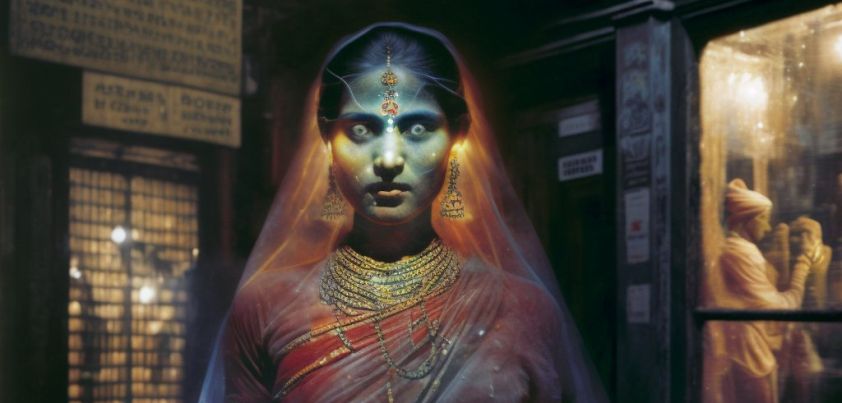 In this story by Anjana Appachana, life changes for a retired, middle-class Indian couple after renting the barsati [rooftop rooms] of their Delhi home to a likeable “Madrasi man” who plays a cruel trick on them. The detached, opinionated husband and his hard-working, under-appreciated wife struggle to deal with a noisy ghost, their visiting, unmarried daughter who defies tradition and asserts her independence and sexuality, and the idiosyncrasies of their long-time servant and his astute, seemingly ever-pregnant wife. Themes include family, ethnic identity, racism, social class, gender roles, tradition, double standards, sexuality, and superstition. More…
In this story by Anjana Appachana, life changes for a retired, middle-class Indian couple after renting the barsati [rooftop rooms] of their Delhi home to a likeable “Madrasi man” who plays a cruel trick on them. The detached, opinionated husband and his hard-working, under-appreciated wife struggle to deal with a noisy ghost, their visiting, unmarried daughter who defies tradition and asserts her independence and sexuality, and the idiosyncrasies of their long-time servant and his astute, seemingly ever-pregnant wife. Themes include family, ethnic identity, racism, social class, gender roles, tradition, double standards, sexuality, and superstition. More…
(Because) We’re Very Poor
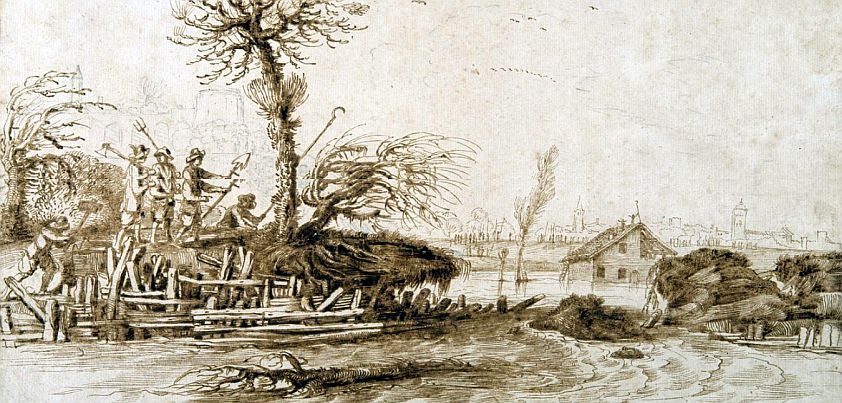 This story by Juan Rulfo describes the devastating impact of an unexpected flood on a post-revolutionary Mexican farming family and, in doing so, highlights the limited life choices available to children of the rural poor. Told in the form of a narrative by a boy, we learn that in addition to losing their entire crop, his family lost a precious cow intended to provide “capital” to prevent his twelve-year-old sister from following their older sisters into prostitution. His mother questions God; his father accepts their fate. Themes include family, poverty/social injustice, the unpredictability and power of nature, helplessness, fatalism, prostitution.
This story by Juan Rulfo describes the devastating impact of an unexpected flood on a post-revolutionary Mexican farming family and, in doing so, highlights the limited life choices available to children of the rural poor. Told in the form of a narrative by a boy, we learn that in addition to losing their entire crop, his family lost a precious cow intended to provide “capital” to prevent his twelve-year-old sister from following their older sisters into prostitution. His mother questions God; his father accepts their fate. Themes include family, poverty/social injustice, the unpredictability and power of nature, helplessness, fatalism, prostitution.
A Country Doctor
 In this dream-like story by Franz Kafka, a country doctor experiences an existential crisis when his response to a call for help during a severe snowstorm sets off a surreal chain of events. The doctor’s horse has died, and a mystery groom who appears out of his pigsty with two unearthly horses rapes his housemaid as he leaves. When it becomes clear that the patient’s wound is incurable, the doctor is stripped naked in a pagan ritual and laid beside the dying man. Themes include isolation, duty, powerlessness, inner conflict, existentialism, loss of faith (in himself and his profession). More…
In this dream-like story by Franz Kafka, a country doctor experiences an existential crisis when his response to a call for help during a severe snowstorm sets off a surreal chain of events. The doctor’s horse has died, and a mystery groom who appears out of his pigsty with two unearthly horses rapes his housemaid as he leaves. When it becomes clear that the patient’s wound is incurable, the doctor is stripped naked in a pagan ritual and laid beside the dying man. Themes include isolation, duty, powerlessness, inner conflict, existentialism, loss of faith (in himself and his profession). More…
The Water-Faucet Vision
 In this humorous story by Gish Jen, a Chinese-American woman whose mother recently passed away reflects on a brief period in her childhood when her mother somehow fell out of their bedroom window. At the time of the fall she was a fifth grader in a Catholic school, obsessed with the idea of becoming a martyr and performing miracles. When her precious comfort beads fall through a drainage grate in the road, she wakes to a “vision” telling her how to recover them. Themes include religious belief, marital conflict, family, friendship, loss. More…
In this humorous story by Gish Jen, a Chinese-American woman whose mother recently passed away reflects on a brief period in her childhood when her mother somehow fell out of their bedroom window. At the time of the fall she was a fifth grader in a Catholic school, obsessed with the idea of becoming a martyr and performing miracles. When her precious comfort beads fall through a drainage grate in the road, she wakes to a “vision” telling her how to recover them. Themes include religious belief, marital conflict, family, friendship, loss. More…
The Underground Gardens
 This story by T. C. Boyle is a fictional account of the founding of California’s Forestiere Underground Gardens by an Italian immigrant in the early 1900s. The immigrant is initially disheartened to find that 70 acres of land he bought by mail order is too dry and hard to farm. He survives by working as a day laborer on other farms and, spurred on by a love interest, hand digs a subterranean mansion in his spare time. When the woman rejects him, he keeps on digging. Themes include faith in oneself, self-sufficiency, infatuation, appearance, perseverance, vision. More…
This story by T. C. Boyle is a fictional account of the founding of California’s Forestiere Underground Gardens by an Italian immigrant in the early 1900s. The immigrant is initially disheartened to find that 70 acres of land he bought by mail order is too dry and hard to farm. He survives by working as a day laborer on other farms and, spurred on by a love interest, hand digs a subterranean mansion in his spare time. When the woman rejects him, he keeps on digging. Themes include faith in oneself, self-sufficiency, infatuation, appearance, perseverance, vision. More…
Africans
 Said to be an allegory of power relations between individuals in a colonial setting, the major themes of this story by Sheila Kohler are oppression and betrayal. An Afrikaner betrays his family through a combination of physical assaults, homosexual encounters, and inappropriate touching of his son’s classmates. His wife betrays him with an overseas affair, and her son and his classmates by not reporting his paedophilic tendencies to the police. Lastly, the wife’s “loyal” African servant since childhood betrays her in a moment of need. Other themes include family, gender roles, sexuality, domestic violence, fear, loyalty vs. duty. More…
Said to be an allegory of power relations between individuals in a colonial setting, the major themes of this story by Sheila Kohler are oppression and betrayal. An Afrikaner betrays his family through a combination of physical assaults, homosexual encounters, and inappropriate touching of his son’s classmates. His wife betrays him with an overseas affair, and her son and his classmates by not reporting his paedophilic tendencies to the police. Lastly, the wife’s “loyal” African servant since childhood betrays her in a moment of need. Other themes include family, gender roles, sexuality, domestic violence, fear, loyalty vs. duty. More…
Menagerie, a Child’s Fable
 Like George Orwell’s Animal Farm, Charles Johnson’s confronting allegorical fable about animals left to fend for themselves in a locked pet shop is not for children. Some see the story as a religious allegory for the consequences (chaos and hell fire) of losing faith in God (Tilford) and listening to the devil (the monkey). Another interpretation is as a political allegory for the anarchy that can arise after a breakdown of authority and the rule of law, much like modern day (2024) Haiti. Themes include oppression, freedom and democracy, pluralism vs. racism, lawlessness and power (greed, violence, murder and rape). More…
Like George Orwell’s Animal Farm, Charles Johnson’s confronting allegorical fable about animals left to fend for themselves in a locked pet shop is not for children. Some see the story as a religious allegory for the consequences (chaos and hell fire) of losing faith in God (Tilford) and listening to the devil (the monkey). Another interpretation is as a political allegory for the anarchy that can arise after a breakdown of authority and the rule of law, much like modern day (2024) Haiti. Themes include oppression, freedom and democracy, pluralism vs. racism, lawlessness and power (greed, violence, murder and rape). More…
The Mesmerizer
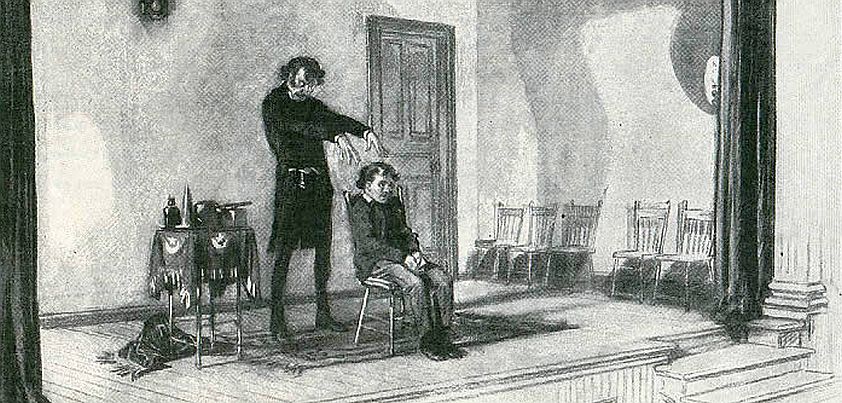 In this story taken from the Autobiography of Mark Twain, the author reminisces about a childhood prank that still haunts him in adult life. When a traveling mesmerizer (hypnotist) came to town, young Twain volunteered as a subject to show off before the public … and make the people laugh and shout and admire. His performance was so convincing that he fooled everyone in town. Later in life he comes to regret the deception, but learns that it can sometimes prove very difficult to undo a lie. Themes include showmanship, deception, the temporary nature of fame, cruelty, gullibility. More…
In this story taken from the Autobiography of Mark Twain, the author reminisces about a childhood prank that still haunts him in adult life. When a traveling mesmerizer (hypnotist) came to town, young Twain volunteered as a subject to show off before the public … and make the people laugh and shout and admire. His performance was so convincing that he fooled everyone in town. Later in life he comes to regret the deception, but learns that it can sometimes prove very difficult to undo a lie. Themes include showmanship, deception, the temporary nature of fame, cruelty, gullibility. More…
Black Is My Favorite Color
 In this cynical take on 1960s race relations by Bernard Malamud, a Jewish-American shopkeeper turns the traditional racial discrimination debate on its head. Claiming to be open-minded and desirous of not only integrating with his local African-American community but also marrying into it, he finds himself shunned, vilified, beaten and rejected for his efforts. Some reviewers suggest that he has brought these problems upon himself by trying to be “too kind” and unintentionally coming across as privileged and condescending towards those he tries to help. Themes include racial inequality, racial and religious discrimination, interracial relationships, violence. More…
In this cynical take on 1960s race relations by Bernard Malamud, a Jewish-American shopkeeper turns the traditional racial discrimination debate on its head. Claiming to be open-minded and desirous of not only integrating with his local African-American community but also marrying into it, he finds himself shunned, vilified, beaten and rejected for his efforts. Some reviewers suggest that he has brought these problems upon himself by trying to be “too kind” and unintentionally coming across as privileged and condescending towards those he tries to help. Themes include racial inequality, racial and religious discrimination, interracial relationships, violence. More…
The Sailor-Boy’s Tale
 Told in the form of a fairy-tale, this story by Isak Dinesen (aka Karen Blixon) includes the rather unusual suggestion that manhood comes with killing someone, kissing a girl and accepting one’s destiny. A young sailor is hurrying to visit a girl who the previous night had promised him his first kiss. After accidentally killing an aggressive Russian sailor who tries to delay him he flees, gets his kiss, and is saved from an angry mob by a grateful shape-shifter returning a good deed. Themes include innocence, romance, coming of age, destiny, karma (good deeds returned), the supernatural. More…
Told in the form of a fairy-tale, this story by Isak Dinesen (aka Karen Blixon) includes the rather unusual suggestion that manhood comes with killing someone, kissing a girl and accepting one’s destiny. A young sailor is hurrying to visit a girl who the previous night had promised him his first kiss. After accidentally killing an aggressive Russian sailor who tries to delay him he flees, gets his kiss, and is saved from an angry mob by a grateful shape-shifter returning a good deed. Themes include innocence, romance, coming of age, destiny, karma (good deeds returned), the supernatural. More…
At the Jim Bridger
 In this story by Ron Carlson, a man regrets having used a censored version of a story about how he saved the life of a hiker to seduce a woman. The hiker was suffering from hypothermia and, trapped in a small tent during a blizzard, the only way to warm him up was to lay naked together in the same sleeping bag. Nature took its course and, although the hiker either isn’t bothered by what happened or doesn’t remember, the protagonist has trouble coming to terms with it. Themes include marriage/relationships, male bonding, fatherhood, betrayal, guilt. More…
In this story by Ron Carlson, a man regrets having used a censored version of a story about how he saved the life of a hiker to seduce a woman. The hiker was suffering from hypothermia and, trapped in a small tent during a blizzard, the only way to warm him up was to lay naked together in the same sleeping bag. Nature took its course and, although the hiker either isn’t bothered by what happened or doesn’t remember, the protagonist has trouble coming to terms with it. Themes include marriage/relationships, male bonding, fatherhood, betrayal, guilt. More…
Fountains in the Rain
 In this quirky story by Yukio Mishima, an arrogant young man courts, seduces and sleeps with a woman. He has no feelings for her, and does so purely for the “pleasure” of seeing the reaction when he says to a woman for the first time, It’s time to break it off!. Her immediate reaction is a river of tears. When he gets up to leave, she follows, still crying uncontrollably. To dump the tearbag, he decides to humiliate her in front of the royal fountains. The result is not what he expected. Themes include “manliness”, manipulation and deception, cruelty, love. More…
In this quirky story by Yukio Mishima, an arrogant young man courts, seduces and sleeps with a woman. He has no feelings for her, and does so purely for the “pleasure” of seeing the reaction when he says to a woman for the first time, It’s time to break it off!. Her immediate reaction is a river of tears. When he gets up to leave, she follows, still crying uncontrollably. To dump the tearbag, he decides to humiliate her in front of the royal fountains. The result is not what he expected. Themes include “manliness”, manipulation and deception, cruelty, love. More…
The Kiss
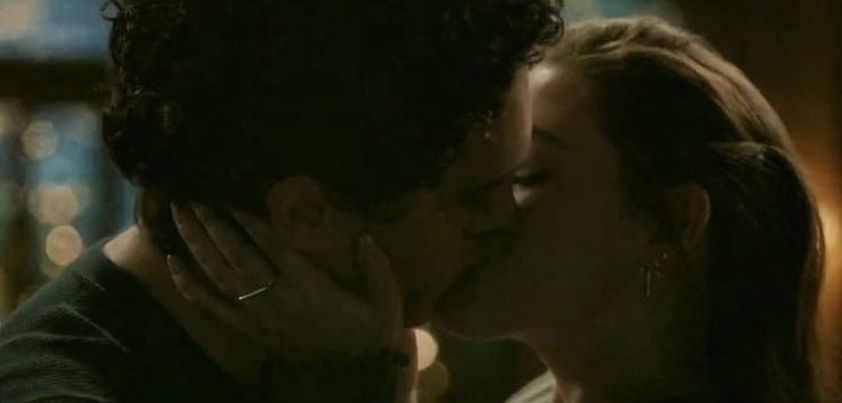 In this Anton Chekhov story, a mistaken kiss in a darkened room temporarily transforms the life of a shy, insecure army officer. He returns to duty on a high, wondering who the woman was and fanaticizing that he could be as successful in love and life as his fellow officers. Some weeks later, he eagerly returns to the scene. When nothing special takes place, he sees the folly of his summer dreams and fancies. In addition to Chekhov’s common message of the cruelty and unpredictability of life, themes include misunderstanding, human desire, self-delusion, raised hopes and shattered dreams. More…
In this Anton Chekhov story, a mistaken kiss in a darkened room temporarily transforms the life of a shy, insecure army officer. He returns to duty on a high, wondering who the woman was and fanaticizing that he could be as successful in love and life as his fellow officers. Some weeks later, he eagerly returns to the scene. When nothing special takes place, he sees the folly of his summer dreams and fancies. In addition to Chekhov’s common message of the cruelty and unpredictability of life, themes include misunderstanding, human desire, self-delusion, raised hopes and shattered dreams. More…
The Drowned Giant
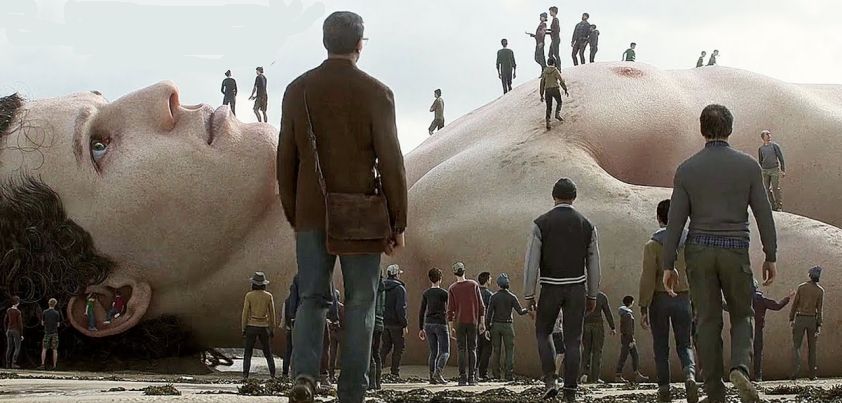 In this story by J. G. Ballard, the body of a giant man is dehumanized because of its otherworldly size. Left to rot on a beach, it first becomes a tourist attraction and later a source of exploitation as various body parts are taken for commercial purposes or as souvenirs. The narrator, who is clearly disturbed by the disrespectful way the body is treated, perceives it as having a transcendent, Homeric quality. This begs a fascinating question: What does it take to be considered human? Themes include humanity, identity, mortality, curiosity, fear (of a potentially superior race), fame, exploitation. More…
In this story by J. G. Ballard, the body of a giant man is dehumanized because of its otherworldly size. Left to rot on a beach, it first becomes a tourist attraction and later a source of exploitation as various body parts are taken for commercial purposes or as souvenirs. The narrator, who is clearly disturbed by the disrespectful way the body is treated, perceives it as having a transcendent, Homeric quality. This begs a fascinating question: What does it take to be considered human? Themes include humanity, identity, mortality, curiosity, fear (of a potentially superior race), fame, exploitation. More…
The Crooked Man
 Set 500 years in the future, this story by Charles Beaumont envisions a dystopian world where homosexuality is the norm, heterosexuality is not only frowned upon but illegal, and children are tube-born and machine-nursed. Although the male protagonist is strongly attracted to a young woman, both struggle to deal with physical contact due to their social conditioning. As they cannot show affection in public, she disguises herself and they meet in a sleazy “men only” bar. In the end, she gets what she came for and his concerns are resolved. Themes include oppression, prejudice, sexual orientation, depravity.
Set 500 years in the future, this story by Charles Beaumont envisions a dystopian world where homosexuality is the norm, heterosexuality is not only frowned upon but illegal, and children are tube-born and machine-nursed. Although the male protagonist is strongly attracted to a young woman, both struggle to deal with physical contact due to their social conditioning. As they cannot show affection in public, she disguises herself and they meet in a sleazy “men only” bar. In the end, she gets what she came for and his concerns are resolved. Themes include oppression, prejudice, sexual orientation, depravity.
The Soft Touch of Grass
 In this story by Luigi Pirandello, a “not old and yet no longer young” man is full of emptiness and despair following the death of his wife. In accordance with Italian tradition, his married son becomes “man of the house” and consigns him to a remodeled servant’s room in the courtyard. Alienated, he spends his days watching children play in a nearby park. A misunderstanding by a young girl when he bends to take off his shoes so he can feel the grass under his feet sends him home in misery. Themes include loss, grief, despair, aging, alienation/isolation, loneliness, relativism. More…
In this story by Luigi Pirandello, a “not old and yet no longer young” man is full of emptiness and despair following the death of his wife. In accordance with Italian tradition, his married son becomes “man of the house” and consigns him to a remodeled servant’s room in the courtyard. Alienated, he spends his days watching children play in a nearby park. A misunderstanding by a young girl when he bends to take off his shoes so he can feel the grass under his feet sends him home in misery. Themes include loss, grief, despair, aging, alienation/isolation, loneliness, relativism. More…
The Devil and Daniel Webster
 In this American tall tale by Stephen Benét a hapless farmer sells his soul to the devil in exchange for seven years of good luck. When the time comes to “pay up”, he asks Daniel Webster, famed lawyer, orator and all around good guy, to help him get out of the deal. After attempts at compromise fail, Webster insists on a trial according to American law. Although the devil whips up a stacked judge and jury comprised of dead scoundrels, Daniel’s speech about American values wins the day.. Themes include patriotism, temptation, good vs. evil, “neighborliness” (helping others), and righteousness. More…
In this American tall tale by Stephen Benét a hapless farmer sells his soul to the devil in exchange for seven years of good luck. When the time comes to “pay up”, he asks Daniel Webster, famed lawyer, orator and all around good guy, to help him get out of the deal. After attempts at compromise fail, Webster insists on a trial according to American law. Although the devil whips up a stacked judge and jury comprised of dead scoundrels, Daniel’s speech about American values wins the day.. Themes include patriotism, temptation, good vs. evil, “neighborliness” (helping others), and righteousness. More…
The Indian Uprising
 If you like stories with a traditional plot, this experimental story from Donald Barthelme may not be for you. Having said this, many reviewers rank it as one of Barthelme’s best. The narrator is the leader of a city besieged by “Comanches”. Interspersed with recounting the battle he shares random, disjointed memories, often expressed in unconventional language. A major theme is rebellion: the “Indians” are attacking the city, many of its unhappy citizens revolt and help them, and his girlfriend supports the Indians and wants nothing more to do with him. Other themes include violence, male-female relationships, deception and betrayal. More…
If you like stories with a traditional plot, this experimental story from Donald Barthelme may not be for you. Having said this, many reviewers rank it as one of Barthelme’s best. The narrator is the leader of a city besieged by “Comanches”. Interspersed with recounting the battle he shares random, disjointed memories, often expressed in unconventional language. A major theme is rebellion: the “Indians” are attacking the city, many of its unhappy citizens revolt and help them, and his girlfriend supports the Indians and wants nothing more to do with him. Other themes include violence, male-female relationships, deception and betrayal. More…
Roses, Rhododendron
 This enchanting story by Alice Adams is about friendship, love (for people and places), and marriage. The narrator recalls how, after she and her mother moved from Boston to North Carolina, a lifelong friendship developed after she fell permanently in love with a house, with a family of three people and with an area of countryside. She forms a strong bond with each member of the family, and later learns that their shared fondness for her may have been the only thing that kept them together. Themes include friendship, mother-daughter relationships, marriage, city vs. country living, the beauty of nature. More…
This enchanting story by Alice Adams is about friendship, love (for people and places), and marriage. The narrator recalls how, after she and her mother moved from Boston to North Carolina, a lifelong friendship developed after she fell permanently in love with a house, with a family of three people and with an area of countryside. She forms a strong bond with each member of the family, and later learns that their shared fondness for her may have been the only thing that kept them together. Themes include friendship, mother-daughter relationships, marriage, city vs. country living, the beauty of nature. More…
The Garden of Stubborn Cats
 In this Italo Calvino fantasy, a bored man spends his lunch breaks following a neighbourhood cat on its afternoon rounds through his rapidly growing the city. Thanks to the cat, he discovers a secret world within the city known only to its feline inhabitants. The story takes a grim turn when the cat steals a fish and leads the man to an overgrown garden that provides the last sanctuary for stray cats in the city. When progress tries to claim it, the cats and other animal residents fight back. Themes: social class, the negative aspects of progress, adaptivity, rebellion. More…
In this Italo Calvino fantasy, a bored man spends his lunch breaks following a neighbourhood cat on its afternoon rounds through his rapidly growing the city. Thanks to the cat, he discovers a secret world within the city known only to its feline inhabitants. The story takes a grim turn when the cat steals a fish and leads the man to an overgrown garden that provides the last sanctuary for stray cats in the city. When progress tries to claim it, the cats and other animal residents fight back. Themes: social class, the negative aspects of progress, adaptivity, rebellion. More…
Good Advice is Rarer than Rubies
 This story by Salman Rushdie satirises several aspects of life in post-colonial Pakistan. When an attractive woman steps off a bus outside a British Consulate for a visa interview, wily “advice expert” Muhammad Ali sees her as any easy mark. However when they meet, he is so struck by her beauty that he offers to help for free. Muhammad is confused when the woman rejects his assistance, attends the interview, and comes back into the street very happy, having failed to get her visa. Themes: power, emigration, deception, tradition (women’s subservience, arranged marriages) and change (women’s growing independence and freedom). More…
This story by Salman Rushdie satirises several aspects of life in post-colonial Pakistan. When an attractive woman steps off a bus outside a British Consulate for a visa interview, wily “advice expert” Muhammad Ali sees her as any easy mark. However when they meet, he is so struck by her beauty that he offers to help for free. Muhammad is confused when the woman rejects his assistance, attends the interview, and comes back into the street very happy, having failed to get her visa. Themes: power, emigration, deception, tradition (women’s subservience, arranged marriages) and change (women’s growing independence and freedom). More…
The Horse Dealer’s Daughter
 At a simplistic level, this story by D. H. Lawrence can be looked upon as a traditional love story. However, with Lawrence’s reputation as a writer who explores human nature through psychological insight and sexual descriptions, it is highly unlikely he would write a story with such a straightforward message. Alternate interpretations include: 1) a tale in which a desperate, calculating woman tries to seduce a vulnerable man; and 2) a religious fantasy in which a near-death experience results in an epiphany that awakens feelings of love and desire. Themes include family relationships, patriarchy, misogyny, despair, death, rebirth, passion. More…
At a simplistic level, this story by D. H. Lawrence can be looked upon as a traditional love story. However, with Lawrence’s reputation as a writer who explores human nature through psychological insight and sexual descriptions, it is highly unlikely he would write a story with such a straightforward message. Alternate interpretations include: 1) a tale in which a desperate, calculating woman tries to seduce a vulnerable man; and 2) a religious fantasy in which a near-death experience results in an epiphany that awakens feelings of love and desire. Themes include family relationships, patriarchy, misogyny, despair, death, rebirth, passion. More…
To Da-duh in Memoriam
 Set mostly in 1930s Barbados, this memoir by Paule Marshall explores the rivalry between a feisty nine-year-old American girl and her eighty-year-old Barbadian grandmother. During the girl’s first visit to her parent’s homeland the two engage in a process of one-upmanship. As the grandmother extols the natural beauty and bounty of her country, the girl counters with the modern wonders of New York. Despite the conflict, the two become so close the girl later feels that the grandmother’s spirit continues to live within her. Themes include pride, rivalry, connection, contrast (age vs. youth, rural vs. urban living, progress), colonialization. More…
Set mostly in 1930s Barbados, this memoir by Paule Marshall explores the rivalry between a feisty nine-year-old American girl and her eighty-year-old Barbadian grandmother. During the girl’s first visit to her parent’s homeland the two engage in a process of one-upmanship. As the grandmother extols the natural beauty and bounty of her country, the girl counters with the modern wonders of New York. Despite the conflict, the two become so close the girl later feels that the grandmother’s spirit continues to live within her. Themes include pride, rivalry, connection, contrast (age vs. youth, rural vs. urban living, progress), colonialization. More…
Terrapin
 This story by Patricia Highsmith involves a psychologically disturbed woman who cannot face the prospect of her eleven-year-old son “growing up”. The poor boy faces humiliation and bullying at school by having to wear tight, much younger boy’s shorts and is embarrassed at home by being forced to recite children’s poetry for his mother’s guests. When she brings home a terrapin (turtle) to cook for a special dinner, he mistakes it for a pet. The terrapin’s seemingly agonising death in boiling water, including a perceived cry for help, triggers a terrifying response. Themes: child abuse, control, change, identity, escape, insanity. More…
This story by Patricia Highsmith involves a psychologically disturbed woman who cannot face the prospect of her eleven-year-old son “growing up”. The poor boy faces humiliation and bullying at school by having to wear tight, much younger boy’s shorts and is embarrassed at home by being forced to recite children’s poetry for his mother’s guests. When she brings home a terrapin (turtle) to cook for a special dinner, he mistakes it for a pet. The terrapin’s seemingly agonising death in boiling water, including a perceived cry for help, triggers a terrifying response. Themes: child abuse, control, change, identity, escape, insanity. More…
Vengeful Creditor
 The major themes of this story by Chinua Achebe are political hypocrisy, class conflict, and education as a pathway out of poverty in postcolonial Africa. Other themes include exploitation, child labor and city vs. country life. A government introduces free education for all as an election ploy, but later abandons the policy due to its cost and resultant cheap-labor shortages. The vengeful creditor is a ten-year-old girl subsequently employed by a rich family as a baby-nurse. When they are too slow keeping what she thought was a promise to pay for her schooling, she decides to impose a heavy penalty. More…
The major themes of this story by Chinua Achebe are political hypocrisy, class conflict, and education as a pathway out of poverty in postcolonial Africa. Other themes include exploitation, child labor and city vs. country life. A government introduces free education for all as an election ploy, but later abandons the policy due to its cost and resultant cheap-labor shortages. The vengeful creditor is a ten-year-old girl subsequently employed by a rich family as a baby-nurse. When they are too slow keeping what she thought was a promise to pay for her schooling, she decides to impose a heavy penalty. More…
Chickamauga
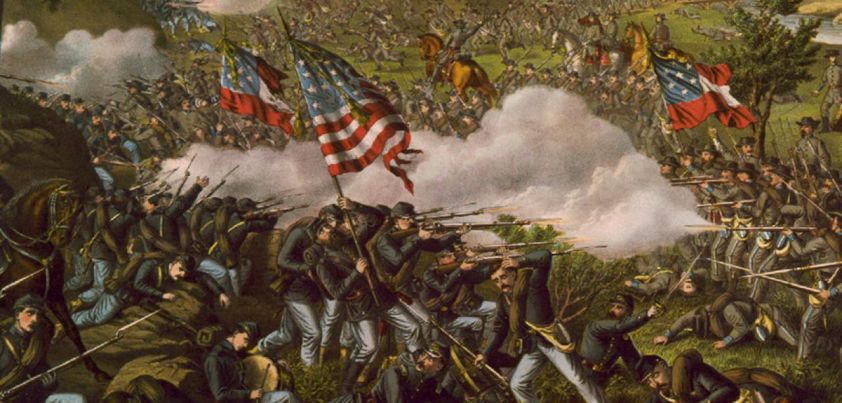 This American Civil War story by Ambrose Bierce develops an increasingly ominous tone after a six-year-old boy becomes lost in the woods while playing soldier. He mysteriously sleeps through a bloody battle, wakes to find himself confronted by hundreds of badly wounded and dying soldiers, and silently “leads” them towards a red glow, which turns out to be his burning home. As he stands making “animal noises” over the gory remains of his dead mother, we learn the reason for some of his unusual behavior. Themes: the fantasy (glory) vs. reality (horror) of war, perception (childhood innocence vs. adult awareness). More…
This American Civil War story by Ambrose Bierce develops an increasingly ominous tone after a six-year-old boy becomes lost in the woods while playing soldier. He mysteriously sleeps through a bloody battle, wakes to find himself confronted by hundreds of badly wounded and dying soldiers, and silently “leads” them towards a red glow, which turns out to be his burning home. As he stands making “animal noises” over the gory remains of his dead mother, we learn the reason for some of his unusual behavior. Themes: the fantasy (glory) vs. reality (horror) of war, perception (childhood innocence vs. adult awareness). More…
Absit
 This unsettling story by Angélica Gorodischer begins with one of a parent’s worst fears: a child molester sees a young girl playing alone in her garden and begins to talk to her. The six or seven-year old in the story knows the rules (don’t talk to strangers!), but the smooth-talking man appears to have little difficulty in winning her confidence. Fortunately, just as it seems he will have his way with her, she manages to turn the tables and exact a cruel and fitting punishment. Themes include pedophilia, temptation, crime and punishment, justice, redemption. More…
This unsettling story by Angélica Gorodischer begins with one of a parent’s worst fears: a child molester sees a young girl playing alone in her garden and begins to talk to her. The six or seven-year old in the story knows the rules (don’t talk to strangers!), but the smooth-talking man appears to have little difficulty in winning her confidence. Fortunately, just as it seems he will have his way with her, she manages to turn the tables and exact a cruel and fitting punishment. Themes include pedophilia, temptation, crime and punishment, justice, redemption. More…
The Stone Boy
 The twin focuses of this disturbing story by Gina Berriault are a farm boy’s unusual reaction to his accidental shooting of his older brother, and his family and community’s interpretation of that reaction. Rather than run home in tears, the boy continues with their assigned task (picking peas), and calmly reports the death when this is completed. When the boy appears emotionless during the sheriff’s questioning, he is branded a psychopath and cruelly ostracized by family and friends. This becomes self-fulfilling, as the once normal nine-year-old transforms into a “stone boy”. Themes: loss, fear/guilt, grief, parental failure, alienation, isolation, identity. More…
The twin focuses of this disturbing story by Gina Berriault are a farm boy’s unusual reaction to his accidental shooting of his older brother, and his family and community’s interpretation of that reaction. Rather than run home in tears, the boy continues with their assigned task (picking peas), and calmly reports the death when this is completed. When the boy appears emotionless during the sheriff’s questioning, he is branded a psychopath and cruelly ostracized by family and friends. This becomes self-fulfilling, as the once normal nine-year-old transforms into a “stone boy”. Themes: loss, fear/guilt, grief, parental failure, alienation, isolation, identity. More…
Speech Sounds
 This story from Octavia Butler takes place in a violent, post-apocalyptic world. A virus has killed billions and left most survivors unable to speak, read, write or understand spoken language. Governments and the corporate world have collapsed, there are no police or community services, fuel is scarce. People must fend for themselves. The protagonist, whose husband and children fell to the virus, is contemplating suicide. The desperate woman finds and cruelly loses a new lover, but in the process discovers a renewed purpose in life. Themes: the importance of language, isolation, loneliness, fear, violence, hope. More…
This story from Octavia Butler takes place in a violent, post-apocalyptic world. A virus has killed billions and left most survivors unable to speak, read, write or understand spoken language. Governments and the corporate world have collapsed, there are no police or community services, fuel is scarce. People must fend for themselves. The protagonist, whose husband and children fell to the virus, is contemplating suicide. The desperate woman finds and cruelly loses a new lover, but in the process discovers a renewed purpose in life. Themes: the importance of language, isolation, loneliness, fear, violence, hope. More…
The Gilded Six-Bits
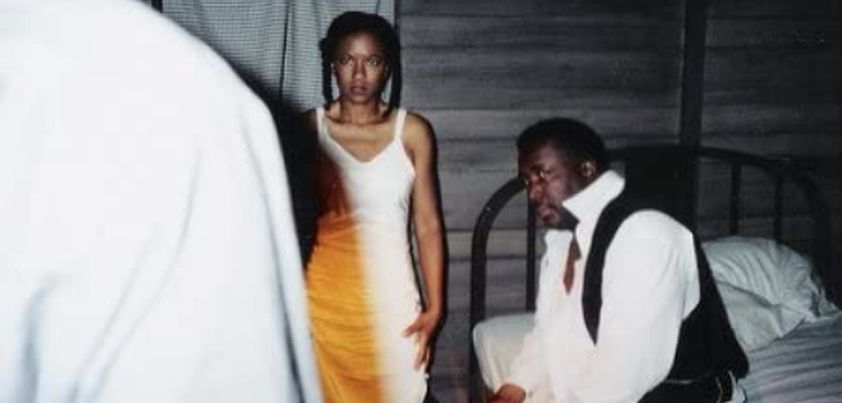 The popular interpretation of this story by Zora Neale Hurston is that two young newlyweds (Joe and Missie May) have what appears to be a perfect marriage until a boastful newcomer from Chicago (Otis) opens an ice-cream parlor in their small Southern town. The couple’s playful, passionate bliss is shattered when Otis, who appears wealthy and sophisticated, seduces Missie May in exchange for promises of gold. In most short stories, this would lead to a tragic ending. Not here! The couple come out of it seemingly happier than ever. Themes: poverty, love, deception (appearances vs. reality), temptation, betrayal, guilt, forgiveness. More…
The popular interpretation of this story by Zora Neale Hurston is that two young newlyweds (Joe and Missie May) have what appears to be a perfect marriage until a boastful newcomer from Chicago (Otis) opens an ice-cream parlor in their small Southern town. The couple’s playful, passionate bliss is shattered when Otis, who appears wealthy and sophisticated, seduces Missie May in exchange for promises of gold. In most short stories, this would lead to a tragic ending. Not here! The couple come out of it seemingly happier than ever. Themes: poverty, love, deception (appearances vs. reality), temptation, betrayal, guilt, forgiveness. More…
The Wedding Dance
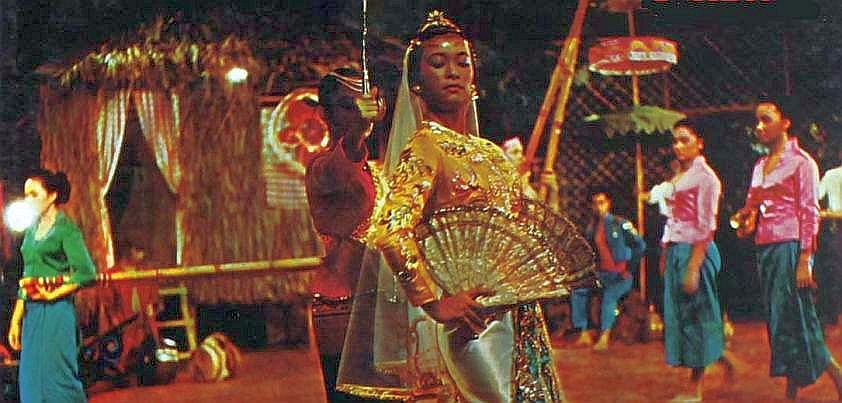 The major themes of this touching story by Amador Daguio are tradition, love and courage. Set in pre-colonial Philippines, a villager follows custom and remarries when his wife fails to conceive. Despite their pledges of love, neither challenges this unwritten law. Whether the theme of “courage” has positive or negative connotations for the protagonist depends on the reader’s interpretation as to why she walks away from her husband’s second wedding dance. Is this because she lacks the courage to confront the tribal elders, or because she finds the courage to “let go” and sacrifice her happiness for her husband’s honor? More…
The major themes of this touching story by Amador Daguio are tradition, love and courage. Set in pre-colonial Philippines, a villager follows custom and remarries when his wife fails to conceive. Despite their pledges of love, neither challenges this unwritten law. Whether the theme of “courage” has positive or negative connotations for the protagonist depends on the reader’s interpretation as to why she walks away from her husband’s second wedding dance. Is this because she lacks the courage to confront the tribal elders, or because she finds the courage to “let go” and sacrifice her happiness for her husband’s honor? More…
The Centaur
 A major theme of this story by José Saramago is fear of those who are fundamentally “different”. Other themes include duality, modernity, wilderness encroachment, loneliness, isolation and identity. A mythical Centaur survives into the 20th century. The only one of its kind still living, it has wandered the wilderness for thousands of years. Unfortunately, humanity is expanding and it has become increasingly difficult to avoid contact. A fascinating feature of the story is the interdependence between the centaur’s horse and human sides. Both have different needs, which often require compromise. There are some human needs, however, that can’t be met. More…
A major theme of this story by José Saramago is fear of those who are fundamentally “different”. Other themes include duality, modernity, wilderness encroachment, loneliness, isolation and identity. A mythical Centaur survives into the 20th century. The only one of its kind still living, it has wandered the wilderness for thousands of years. Unfortunately, humanity is expanding and it has become increasingly difficult to avoid contact. A fascinating feature of the story is the interdependence between the centaur’s horse and human sides. Both have different needs, which often require compromise. There are some human needs, however, that can’t be met. More…
Big Brother, Little Sister
 Sadly, elements of this story by Witi Ihimaera play out every day in cities across the world. Major themes include domestic violence, fear, isolation, desperation and sibling love. When a young boy flees home to escape his insecure mother’s abusive boyfriend, his seven-year-old sister follows. Within a few hours, they encounter several of the dangers that being alone on the streets at night have to offer. The city is portrayed as an endless stream of lost souls, each struggling to survive or reach an unknown destination. The two children join them. Other themes: drug and alcohol abuse, dependency, irresponsibility, hope. More…
Sadly, elements of this story by Witi Ihimaera play out every day in cities across the world. Major themes include domestic violence, fear, isolation, desperation and sibling love. When a young boy flees home to escape his insecure mother’s abusive boyfriend, his seven-year-old sister follows. Within a few hours, they encounter several of the dangers that being alone on the streets at night have to offer. The city is portrayed as an endless stream of lost souls, each struggling to survive or reach an unknown destination. The two children join them. Other themes: drug and alcohol abuse, dependency, irresponsibility, hope. More…
Subha
 A central theme of this story by Rabindranath Tagore is the tendency to dehumanize those with disabilities. A deaf Indian girl is ostracized by her mother and most in her village. As she grows up, she finds solace in nature and love for her family’s two cows. Her father, shamed and faced with the possibility of the family becoming outcastes if she doesn’t marry, tricks a man from a distant village into an arranged marriage. Miserable and far from home, the poor girl’s fate is uncertain. Other themes include tradition, innocence, isolation and loneliness, peace in nature, shame, fear, misery. More…
A central theme of this story by Rabindranath Tagore is the tendency to dehumanize those with disabilities. A deaf Indian girl is ostracized by her mother and most in her village. As she grows up, she finds solace in nature and love for her family’s two cows. Her father, shamed and faced with the possibility of the family becoming outcastes if she doesn’t marry, tricks a man from a distant village into an arranged marriage. Miserable and far from home, the poor girl’s fate is uncertain. Other themes include tradition, innocence, isolation and loneliness, peace in nature, shame, fear, misery. More…
Amnesty
 A major theme of this story by Nadine Gordimer, and the reason it is still relevant today, is the need for grass roots involvement in the struggle for justice. A young South African woman whose unionist husband is imprisoned for five years comes to appreciate the need for people at all levels to join hands in resisting oppression. Although the exploitation of poorly educated indigenous laborers depicted in the story has greatly diminished, injustice in many other forms is still rampant throughout the world. Other themes: racism, the right to protest, the importance of learning, love, loneliness, dedication, change. More…
A major theme of this story by Nadine Gordimer, and the reason it is still relevant today, is the need for grass roots involvement in the struggle for justice. A young South African woman whose unionist husband is imprisoned for five years comes to appreciate the need for people at all levels to join hands in resisting oppression. Although the exploitation of poorly educated indigenous laborers depicted in the story has greatly diminished, injustice in many other forms is still rampant throughout the world. Other themes: racism, the right to protest, the importance of learning, love, loneliness, dedication, change. More…
The Way It Felt to Be Falling
 The major theme of this story by Kim Edwards is fear. For the nineteen-year-old-protagonist working to save money for college, the principal fear is losing her mind like her father. Her life revolves around work, helping her overwrought mother with her home cake-decorating business, and hanging out with her mentally unstable boyfriend. When the boyfriend talks her into going skydiving, she faces an even greater fear: death. Her exhilaration over confronting this fear and making the jump help displace her other fears and turn her life around. Other themes include responsibility, loneliness, mental illness, substance abuse, shame, freedom. More…
The major theme of this story by Kim Edwards is fear. For the nineteen-year-old-protagonist working to save money for college, the principal fear is losing her mind like her father. Her life revolves around work, helping her overwrought mother with her home cake-decorating business, and hanging out with her mentally unstable boyfriend. When the boyfriend talks her into going skydiving, she faces an even greater fear: death. Her exhilaration over confronting this fear and making the jump help displace her other fears and turn her life around. Other themes include responsibility, loneliness, mental illness, substance abuse, shame, freedom. More…
The Sheriff’s Children
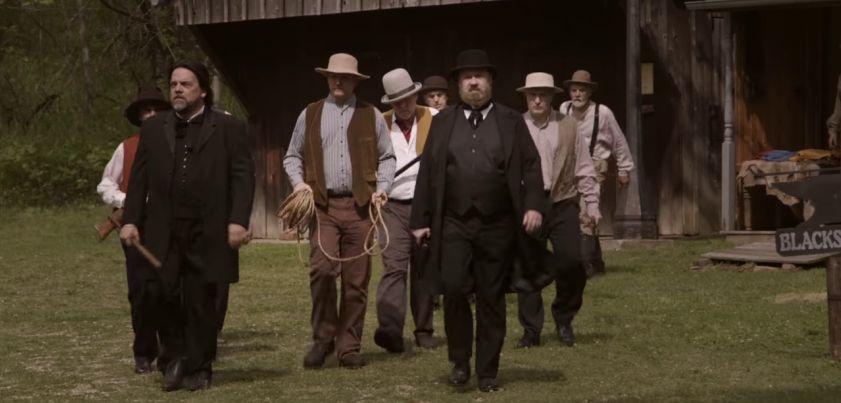 In this story by Charles W. Chesnutt, a highly respected sheriff with a strong sense of duty protects an alleged murderer from a vigilante mob. He later learns that the prisoner, a mixed race former slave, is his son by a slave woman he had once owned. Believing his son to be innocent, the sheriff faces a dilemma. Should he do his duty (keep him safe until his trial and almost certain hanging) or take responsibility for his welfare (let him ‘escape’)? Themes: race and racism, frontier justice, slavery, identity, regret, duty vs. responsibility. More…
In this story by Charles W. Chesnutt, a highly respected sheriff with a strong sense of duty protects an alleged murderer from a vigilante mob. He later learns that the prisoner, a mixed race former slave, is his son by a slave woman he had once owned. Believing his son to be innocent, the sheriff faces a dilemma. Should he do his duty (keep him safe until his trial and almost certain hanging) or take responsibility for his welfare (let him ‘escape’)? Themes: race and racism, frontier justice, slavery, identity, regret, duty vs. responsibility. More…
A Shocking Accident
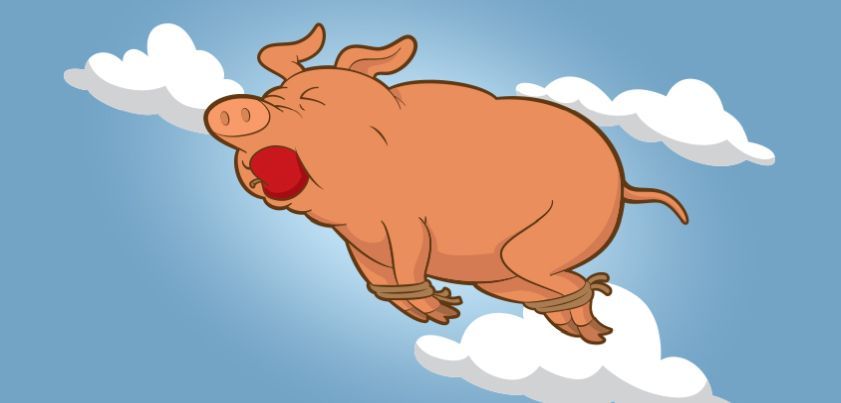 Graham Greene’s short stories span many genres, from the serious to the farcical. In this comedy, a boy rationalizes his widowed father’s long absences from home by convincing himself that he is a mysterious adventurer. In reality, his father is a restless author whose unlikely death in an Italian “street accident” becomes an embarrassment the lad must carry into adulthood. Things change when he falls in love with a woman who shares a similar concern for the fate of animals. Themes: father-son relationships, perception, the unpredictability of life/death, communicating bad news, fear of ridicule. More…
Graham Greene’s short stories span many genres, from the serious to the farcical. In this comedy, a boy rationalizes his widowed father’s long absences from home by convincing himself that he is a mysterious adventurer. In reality, his father is a restless author whose unlikely death in an Italian “street accident” becomes an embarrassment the lad must carry into adulthood. Things change when he falls in love with a woman who shares a similar concern for the fate of animals. Themes: father-son relationships, perception, the unpredictability of life/death, communicating bad news, fear of ridicule. More…
Land Deal
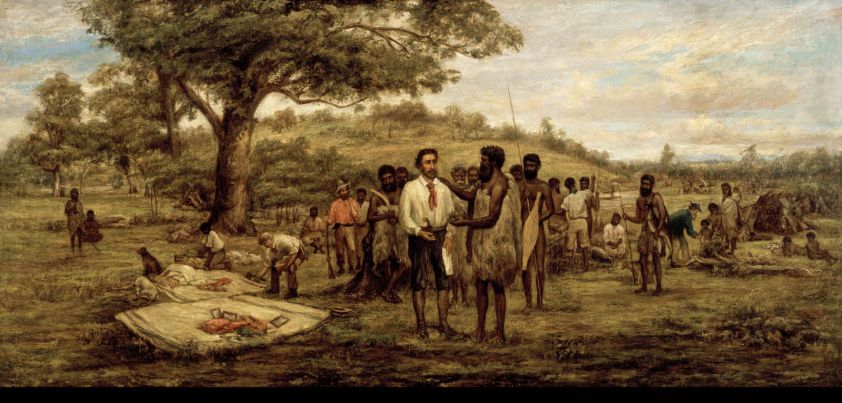 Australians recently voted (No) on a proposal to change their Constitution to recognize its First Peoples by establishing an advisory body called the Aboriginal and Torres Strait Islander Voice. In recognition of this, it seems appropriate to feature this acclaimed story by Gerald Murnane. It provides a surreal interpretation of an early (afterwards deemed void) “treaty” between men from overseas and representatives of the Wurundjeri people of the Kulin Aboriginal Nation. The Wurundjeri narrator rationalizes the events as a dream (or perhaps nightmare) within a dream that must one day end. Themes: manipulation, exploitation, indivisibility of the land, restoration. More…
Australians recently voted (No) on a proposal to change their Constitution to recognize its First Peoples by establishing an advisory body called the Aboriginal and Torres Strait Islander Voice. In recognition of this, it seems appropriate to feature this acclaimed story by Gerald Murnane. It provides a surreal interpretation of an early (afterwards deemed void) “treaty” between men from overseas and representatives of the Wurundjeri people of the Kulin Aboriginal Nation. The Wurundjeri narrator rationalizes the events as a dream (or perhaps nightmare) within a dream that must one day end. Themes: manipulation, exploitation, indivisibility of the land, restoration. More…
The Grandmother
 I should start by saying that, as someone who spent twelve years teaching at a Thai university, this story by K. Surangkhanang is the opposite of my experience of Thai attitudes towards older family members and the aged in general. Rejected by four of her five children, a frail grandmother lives a miserable life. Forced to fend for herself selling dumplings, she walks for hours every day, facing rudeness and disrespect wherever she goes. The devout woman prays for death, hoping for a better life in her next incarnation. Themes include poverty, selfishness and ingratitude, disrespect, dignity, religious devotion. More…
I should start by saying that, as someone who spent twelve years teaching at a Thai university, this story by K. Surangkhanang is the opposite of my experience of Thai attitudes towards older family members and the aged in general. Rejected by four of her five children, a frail grandmother lives a miserable life. Forced to fend for herself selling dumplings, she walks for hours every day, facing rudeness and disrespect wherever she goes. The devout woman prays for death, hoping for a better life in her next incarnation. Themes include poverty, selfishness and ingratitude, disrespect, dignity, religious devotion. More…
The Postmaster / Stationmaster
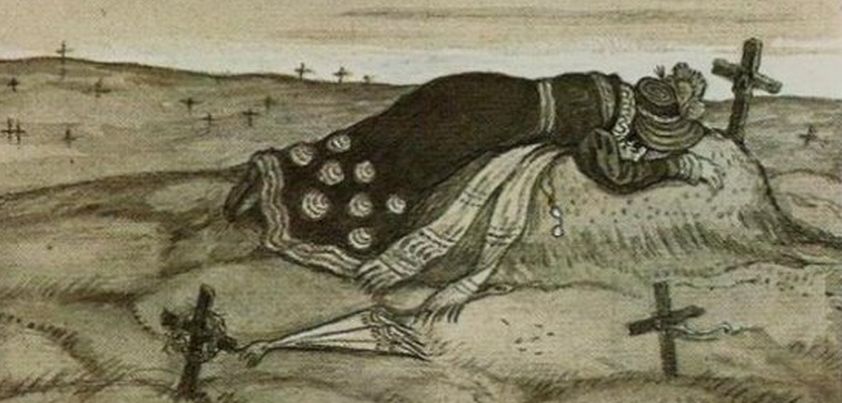 Set in early 19th century Russia, a fascinating aspect of his acclaimed story from Alexander Pushkin is its ambiguity. A beautiful, flirtatious girl leaves her impoverished village in the company of a passing army officer. When her distraught father tracks the officer to a distant city and finds them together, he concludes she is a “kept woman”. He returns home in disgust, turns to alcohol, and dies a lonely death. Years later a beautiful, obviously very rich woman weeps on his grave. Themes include class conflicts, poverty, moral corruption vs. romantic love, government bureaucracy, religion, misjudgement, loss, grief. More…
Set in early 19th century Russia, a fascinating aspect of his acclaimed story from Alexander Pushkin is its ambiguity. A beautiful, flirtatious girl leaves her impoverished village in the company of a passing army officer. When her distraught father tracks the officer to a distant city and finds them together, he concludes she is a “kept woman”. He returns home in disgust, turns to alcohol, and dies a lonely death. Years later a beautiful, obviously very rich woman weeps on his grave. Themes include class conflicts, poverty, moral corruption vs. romantic love, government bureaucracy, religion, misjudgement, loss, grief. More…
April in Paris
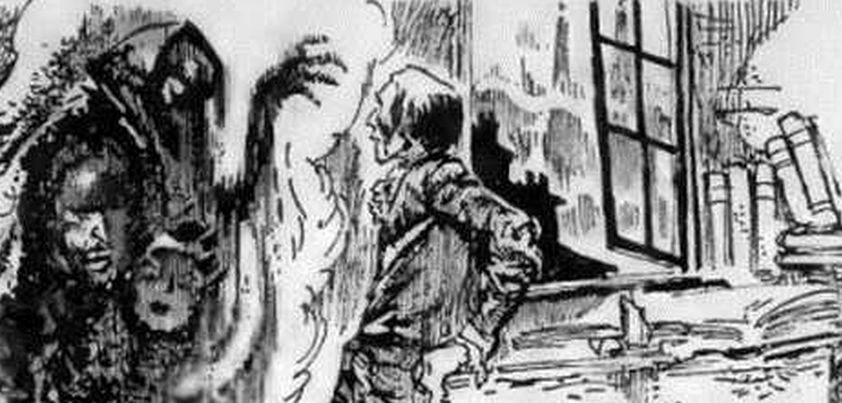 The central theme of this Ursula Le Guin story is the alienation and loneliness brought about by obsession with work and lack of companionship. A 15th century French scientist, frustrated with being unable to prove a theory he had developed, decides his work is a waste of time. He experiments with black magic and is surprised when his first spell is a success, allowing him to teleport kindred spirits from the past and future to join him. Those who come are so happy in his reality that they have no desire to return. Other themes: the occult, connection. More…
The central theme of this Ursula Le Guin story is the alienation and loneliness brought about by obsession with work and lack of companionship. A 15th century French scientist, frustrated with being unable to prove a theory he had developed, decides his work is a waste of time. He experiments with black magic and is surprised when his first spell is a success, allowing him to teleport kindred spirits from the past and future to join him. Those who come are so happy in his reality that they have no desire to return. Other themes: the occult, connection. More…
Fleur
 This story by Louise Edrich incorporates elements of magical realism and Chippewa Indian mythology. It recounts the experiences of Fleur, a Native-American woman who leaves her tribe after several mystical experiences to work in a small-town butchery. Fleur is not only strong, independent and confident, but has seemingly magical powers that, among other things, help her consistently win money from her male co-workers in after-work card games. This damages the men’s egos, leading to her brutal rape and the “accidental” death of her three abusers. Themes: female power, sexuality and mystique; racism; gender and cultural conflicts; violence. More…
This story by Louise Edrich incorporates elements of magical realism and Chippewa Indian mythology. It recounts the experiences of Fleur, a Native-American woman who leaves her tribe after several mystical experiences to work in a small-town butchery. Fleur is not only strong, independent and confident, but has seemingly magical powers that, among other things, help her consistently win money from her male co-workers in after-work card games. This damages the men’s egos, leading to her brutal rape and the “accidental” death of her three abusers. Themes: female power, sexuality and mystique; racism; gender and cultural conflicts; violence. More…
The Fat Girl
 This story from Andre Dubus highlights the psychological damage that can arise when young people are shamed for not fitting community or cultural norms. A mother’s efforts to control her daughter’s diet results in a serious eating disorder. Later, a weight-loss program initiated by a well-meaning college roommate leads to a confused self-image, an unfulfilling, shallow marriage and, when she becomes pregnant, recurrence of the eating disorder. Fortunately, the birth of a son brings about an epiphany through which she is finally able to be comfortable with who she is. Themes: conformity, identity, food and dieting, body shaming, friendship, transformation. More…
This story from Andre Dubus highlights the psychological damage that can arise when young people are shamed for not fitting community or cultural norms. A mother’s efforts to control her daughter’s diet results in a serious eating disorder. Later, a weight-loss program initiated by a well-meaning college roommate leads to a confused self-image, an unfulfilling, shallow marriage and, when she becomes pregnant, recurrence of the eating disorder. Fortunately, the birth of a son brings about an epiphany through which she is finally able to be comfortable with who she is. Themes: conformity, identity, food and dieting, body shaming, friendship, transformation. More…
On the Rainy River
 The major themes of this “memoir” by Tim O’Brien are shame and guilt. Its purpose is to mitigate the trauma of events twenty years earlier when, as a twenty-one-year-old, the writer was drafted to fight in Vietnam. Ironically, he feels both emotions: 1) for his initial decision to flee America to avoid fighting in a war he didn’t believe in; and 2) for putting his convictions aside, going to war, and things he did and/or was exposed to during the conflict. Other themes: moral confusion, civic duty, fear (embarrassment/social stigma vs. injury or death), connection, courage and cowardice. More…
The major themes of this “memoir” by Tim O’Brien are shame and guilt. Its purpose is to mitigate the trauma of events twenty years earlier when, as a twenty-one-year-old, the writer was drafted to fight in Vietnam. Ironically, he feels both emotions: 1) for his initial decision to flee America to avoid fighting in a war he didn’t believe in; and 2) for putting his convictions aside, going to war, and things he did and/or was exposed to during the conflict. Other themes: moral confusion, civic duty, fear (embarrassment/social stigma vs. injury or death), connection, courage and cowardice. More…
The Money-Box
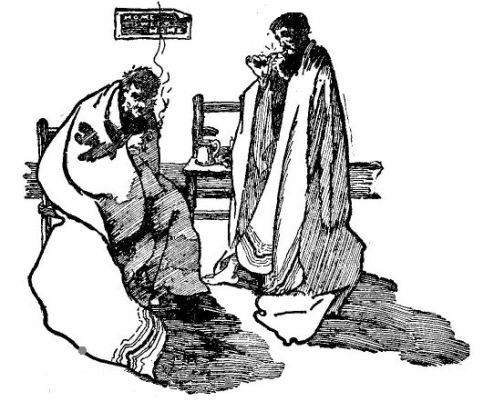 Modern readers tend to associate W. W. Jacobs with tales of the macabre, such as his famous The Monkey’s Paw. What few realize is that most of his stories were humorous. His favorite subjects were ships and those who sail in them, and how tricksters take advantage of slow-witted villagers. In this story, two sailors tired of squandering their wages in the first few days ashore trust their pay to a very steady old teetotaler who agrees to give them a moderate amount each day. Needless to say, they soon regret the decision. Themes: money, irresponsibility, temperance, duty. More…
Modern readers tend to associate W. W. Jacobs with tales of the macabre, such as his famous The Monkey’s Paw. What few realize is that most of his stories were humorous. His favorite subjects were ships and those who sail in them, and how tricksters take advantage of slow-witted villagers. In this story, two sailors tired of squandering their wages in the first few days ashore trust their pay to a very steady old teetotaler who agrees to give them a moderate amount each day. Needless to say, they soon regret the decision. Themes: money, irresponsibility, temperance, duty. More…
A Point at Issue!
 This early Kate Chopin story explores the relationship between unconventional 1880s newly-weds. A progressive mathematics professor marries his ideal woman: independent, intuitive, intellectual and extremely good to look at. After a European honeymoon, they decide to live separate lives for one or two years. She stays in Paris to become fluent in French, while he returns to teaching in America. The relationship is tested when he writes about the interesting emotions a friend’s young daughter stirs in him, and she is caught with an embarrassed young man in her studio. Themes: independence and equality, trust vs. suspicion, jealousy, repression. More…
This early Kate Chopin story explores the relationship between unconventional 1880s newly-weds. A progressive mathematics professor marries his ideal woman: independent, intuitive, intellectual and extremely good to look at. After a European honeymoon, they decide to live separate lives for one or two years. She stays in Paris to become fluent in French, while he returns to teaching in America. The relationship is tested when he writes about the interesting emotions a friend’s young daughter stirs in him, and she is caught with an embarrassed young man in her studio. Themes: independence and equality, trust vs. suspicion, jealousy, repression. More…
The Aleph
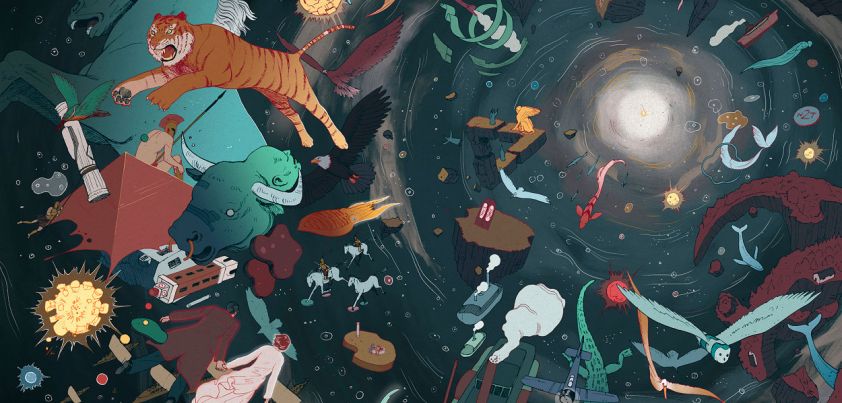 In a commentary on this story, Jorge Borges explained: “What eternity is to time, the Aleph is to space”. In the story, a fictionalized version of Borges maintains contact with the family of a deceased woman he once loved. He learns that her cousin, an “untalented” poet, is using an Aleph, a point in space that contains all other points, to write an epic poem versifying every place on Earth. Major Themes: the fleeting nature of memory, the limitations of language in describing infinity. Other themes: unrequited love, death, grief, the subjective nature of art. More…
In a commentary on this story, Jorge Borges explained: “What eternity is to time, the Aleph is to space”. In the story, a fictionalized version of Borges maintains contact with the family of a deceased woman he once loved. He learns that her cousin, an “untalented” poet, is using an Aleph, a point in space that contains all other points, to write an epic poem versifying every place on Earth. Major Themes: the fleeting nature of memory, the limitations of language in describing infinity. Other themes: unrequited love, death, grief, the subjective nature of art. More…
Tennessee’s Partner
 Bret Harte’s Tennessee’s Partner is said to be one of America’s first ‘bromance’ stories. Set in an isolated mining town during the California Gold Rush, two men sharing a cabin have a friendship so strong that it survives when one of them (Tennessee) runs away with his partner’s new bride and returns after she leaves him for someone else. Unfortunately, the townspeople become tired of Tennessee’s mischief and begin to suspect him of theft. A purported armed robbery, frontier justice and a hanging separate the two friends. But not for long! Themes: friendship, loyalty, crime and punishment, justice. More…
Bret Harte’s Tennessee’s Partner is said to be one of America’s first ‘bromance’ stories. Set in an isolated mining town during the California Gold Rush, two men sharing a cabin have a friendship so strong that it survives when one of them (Tennessee) runs away with his partner’s new bride and returns after she leaves him for someone else. Unfortunately, the townspeople become tired of Tennessee’s mischief and begin to suspect him of theft. A purported armed robbery, frontier justice and a hanging separate the two friends. But not for long! Themes: friendship, loyalty, crime and punishment, justice. More…